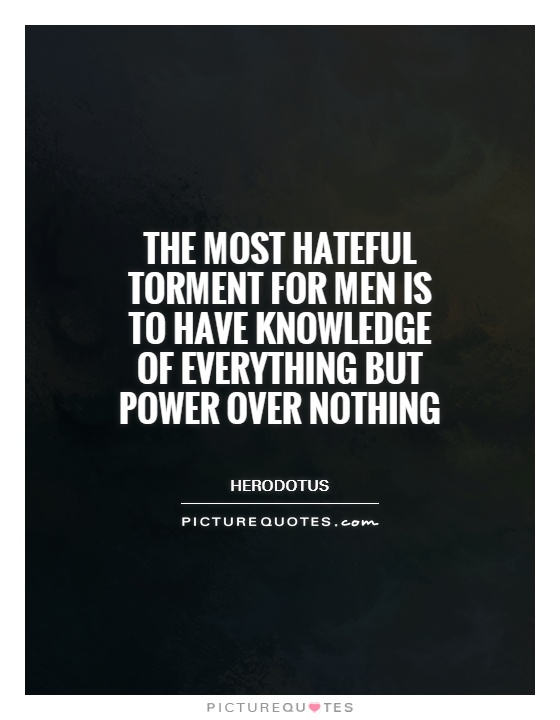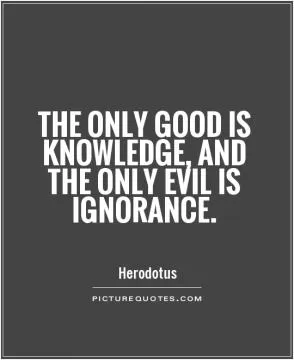The most hateful torment for men is to have knowledge of everything but power over nothing

The most hateful torment for men is to have knowledge of everything but power over nothing
In the context of Herodotus, the quote "The most hateful torment for men is to have knowledge of everything but power over nothing" holds significant meaning. Herodotus, often referred to as the "Father of History," was a Greek historian who lived during the 5th century BC. He is known for his extensive writings on the Greco-Persian Wars and is considered one of the most important sources of information on ancient history.Herodotus believed in the importance of knowledge and the pursuit of truth. He traveled extensively throughout the ancient world, collecting information and stories from various cultures and civilizations. His work reflects his belief that knowledge is power and that understanding the past is essential for shaping the future.
The quote speaks to the idea that having knowledge without the ability to act on it can be a source of great frustration and torment. In Herodotus' writings, we see examples of individuals who possess great knowledge but lack the power to influence events or shape their own destinies. This can lead to feelings of helplessness and despair, as they are unable to use their knowledge to effect change or achieve their goals.
One example from Herodotus' work is the story of Croesus, the king of Lydia. Croesus was known for his wealth and wisdom, but despite his knowledge of the world, he was ultimately unable to prevent his own downfall. His hubris and overconfidence led to his defeat at the hands of the Persian Empire, despite his best efforts to avoid it.












 Friendship Quotes
Friendship Quotes Love Quotes
Love Quotes Life Quotes
Life Quotes Funny Quotes
Funny Quotes Motivational Quotes
Motivational Quotes Inspirational Quotes
Inspirational Quotes